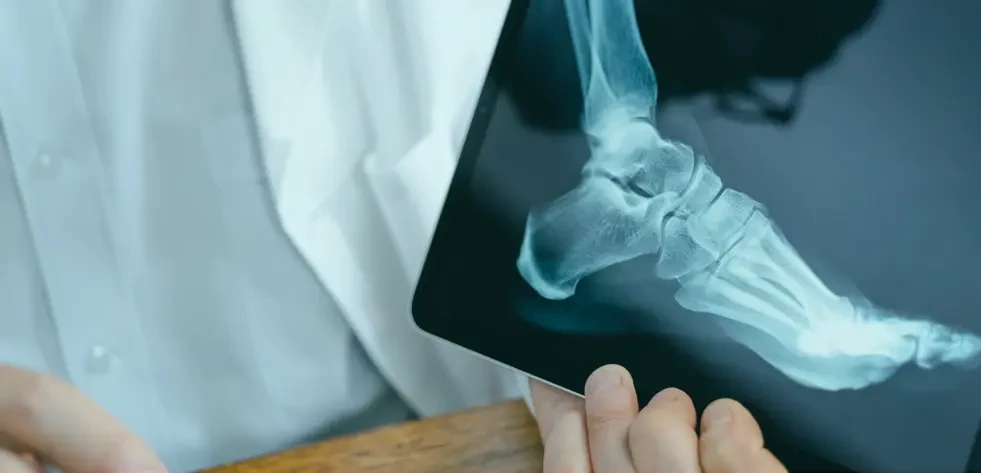Medotil's Promise: No hidden charges
Rest assured, no additional cost will be incurred from our end because your health is priceless.
Request a Free Consultation Contact Us
An ACL injury refers to a tear or sprain of the anterior cruciate ligament, a key ligament in the knee that provides stability during movement.
Read MoreAn Aneurysmal Bone Cyst (ABC) is a rare, benign bone lesion characterized by the presence of blood-filled spaces within the bone, leading to the formation of a cystic cavity.
Read MoreCervical Disc Replacement Surgery is a medical procedure used to treat severe neck pain caused by damaged or degenerated cervical discs, which are the soft, cushioning pads between the bones in the neck.
Read MoreHip Replacement is a surgical procedure that involves removing a damaged or worn-out hip joint and replacing it with an artificial joint, typically made of metal, ceramic, or plastic components.
Read MoreJuvenile Rheumatoid Arthritis (JRA) is a type of arthritis that affects children under the age of 16. It is an autoimmune disorder in which the body’s immune system mistakenly attacks the joints, leading to inflammation, pain, stiffness, and swelling.
Read MoreA knee ligament tear refers to the injury or rupture of one or more of the four key ligaments that support the knee joint: the anterior cruciate ligament (ACL), posterior cruciate ligament (PCL), medial collateral ligament (MCL), and lateral collateral ligament (LCL).
Read MoreKnee replacement surgery, also known as knee arthroplasty, is a procedure where damaged or worn-out parts of the knee joint are replaced with artificial components.
Read MoreNeuromuscular disorders refer to a group of conditions that affect the muscles and the nerves controlling them. These disorders arise from abnormalities in the nerves, muscles, or the junctions between them.
Read MoreA rotator cuff tear refers to a tear or damage to the group of muscles and tendons that stabilize the shoulder joint, known as the rotator cuff. The rotator cuff plays a vital role in enabling shoulder movements such as lifting and rotating the arm.
Read MoreA shoulder ligament tear occurs when one or more of the ligaments in the shoulder joint are stretched, torn, or ruptured due to injury or overuse. Ligaments are strong connective tissues that stabilize the joint and allow for smooth, controlled movements.
Read MoreA slip disc, also known as a herniated or prolapsed disc, occurs when the soft, gel-like center of a spinal disc pushes through a tear in its tougher outer layer.
Read MoreA spinal fracture occurs when one or more bones in the spine are cracked or broken, often due to trauma like accidents, falls, or sports injuries. This can lead to severe pain, limited mobility, or neurological damage.
Read MoreSpondylitis refers to inflammation of the spine's joints, causing pain and stiffness. It typically affects the sacroiliac joints, which connect the spine to the pelvis, but can also impact other parts of the spine. The most common type of spondylitis is Ankylosing Spondylitis (AS), a chronic condition that leads to the fusion of the vertebrae over time, reducing flexibility and mobility.
Read MoreUpper back pain refers to discomfort or pain in the region of the upper spine, typically between the neck and the lower ribs. It is a common condition that can affect individuals of all ages, often resulting from poor posture, muscle strain, or injury.
Read More